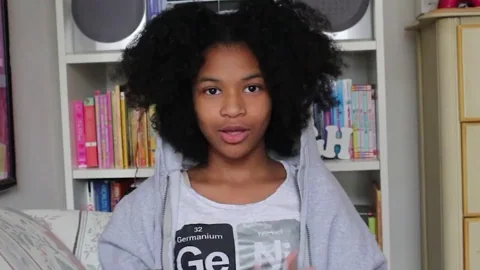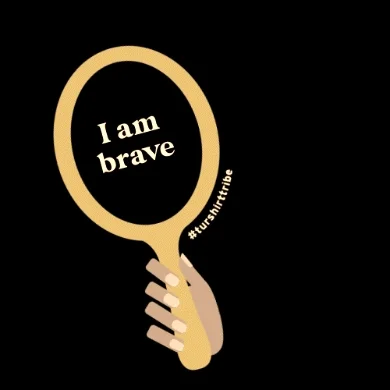
This logo isn't an ad or affiliate link. It's an organization that shares in our mission, and empowered the authors to share their insights in Byte form.
Rumie vets Bytes for compliance with our
Standards.
The organization is responsible for the completeness and reliability of the content.
Learn more
about how Rumie works with partners.
Have you ever felt your heart race or your mind go blank before stepping into a room full of people?

Imagine you're on your way to your first-ever job interview. Your hands are a bit shaky, and you can feel your thoughts bouncing around. Like many of us, you wish for a way to calm your nerves before this big moment.

Don't worry! Explore simple yet effective mindfulness exercises to help you handle these moments calmly and confidently.

Understanding Mindfulness Basics
First, let’s dive into why mindfulness exercises can be a powerful tool to calm those nerves and help you feel present and confident as you step into any social situation.
What is mindfulness?

Mindfulness is a skill you can develop that involves focusing on "the present moment, without judgment." It encourages awareness of your thoughts, body, or environment. Although rooted in Buddhism and meditation practices, it doesn’t require any spiritual beliefs or specific faith to practice.
In short, it's about finding a way to center your thoughts and relax your body.
Why use mindfulness exercises before social events?

Reduced anxiety: Mindfulness exercises can ease anxiety and defensiveness in social settings and may be as effective as other types of therapy such as CBT for social anxiety.
Increased self-awareness: Mindfulness exercises keep you in the present, which can boost self-awareness and connection with others.
The 4-7-8 Breathing Exercise
Now, it's time to do some exercise! The 4-7-8 breathing technique is one simple and effective way to quickly calm your mind and body before social events.

This mindfulness exercise slows your heart rate and triggers a relaxation response in your body. Here are the steps to practice 4-7-8 breathing:
Inhale through your nose for 4 seconds.
Hold your breath for 7 seconds.
Exhale through your mouth for 8 seconds.
Repeat this cycle 3-4 times.
When can you use it?
Just before you step into that social scene.
Anytime those nerves start to kick in!
🎯 Quick Tip
Place one hand on your belly to feel the breath as it moves into your body, helping you focus and center.
Did you know?
The 4-7-8 technique is based on an ancient yogic practice and is known to help improve sleep and reduce stress over time!
Body Scan Exercise
How do you feel about the 4-7-8 technique? Let's try the other one!

The body scan is another quick mindfulness exercise to release tension and ground yourself by focusing on each part of your body.
This exercise shifts your attention inward, helping you relax physically and mentally by noticing areas of tension.
Here are the steps to practice the body scan:

Start with your feet. Notice any sensations, tightness, or warmth. Let your feet relax.
Move up through your legs, hips, and stomach. Gently release any tension you feel.
Focus on your chest, shoulders, and arms. Take a deep breath, relaxing these areas.
End with your neck, face, and head. Soften your jaw, and release any tightness in your forehead.
Take a final deep breath. Feel your whole body relax.
✨ Quick Tip
Imagine each area gently relaxing like a wave washing over you, releasing stress as it goes.
Did you know?
Body scans help improve body awareness, which is linked to better emotional regulation and reduced stress over time!
Positive Self-Talk
Positive self-talk is another effective way to reduce anxiety! Positive self-talk is speaking to yourself in an encouraging, affirming way to counter negative thoughts. This mindfulness exercise is like having a cheerleader in your mind, guiding you toward confidence and peace.

Here’s a simple 3-step guide to start today:
Identify negative thoughts.
Notice moments when your inner voice is overly critical.
Example: "I always mess up under pressure."
Challenge and reframe.
Replace negativity with uplifting, constructive affirmations.
Before: "I can’t do this." After: "I'm learning every day, and I’ll give this my best shot."
Practice daily.
Use reminders, sticky notes, or a journal to reinforce positivity.
Try this: Write 3 positive affirmations each morning!
Quiz
Imagine you have an important presentation at work. As you're about to start, you notice your heart racing and your hands trembling. Which mindfulness technique would be most effective to quickly calm your nerves and regain focus?
The 4-7-8 breathing technique is ideal in high-stress moments because it can quickly calm the nervous system and bring your focus back to the present.
Take Action

Now that you’ve learned these mindfulness techniques, it’s time to put them into practice! Taking small steps now will help you feel prepared, calm, and confident the next time you face a social event. Make these mindfulness exercises part of your routine! 🌟
This Byte has been authored by
Della Ouyang
Instructional Designer
